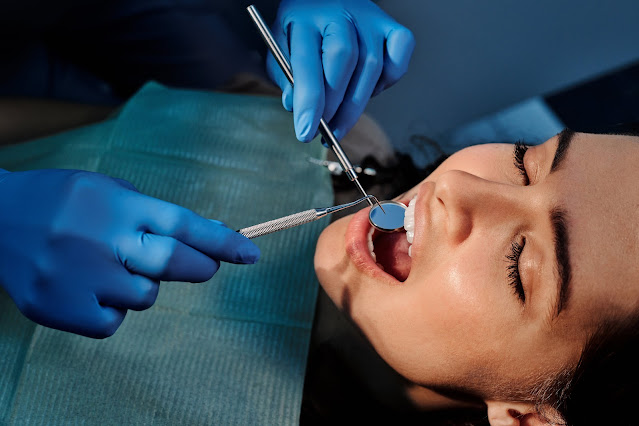The Cutting Edge of Dentistry Exploring the Benefits of Ray Dentistry
In recent times, the field of dentistry has witnessed a revolutionary advancement in technology with the preface of ray dentistry. Gone are the days of traditional dental procedures involving drills and scalpels. Laser dentistry in Arlington has surfaced as a slice- edge fashion that offers multitudinous advantages, revolutionizing the way dental treatments are performed. In this composition, we will claw into the world of ray dentistry, exploring its operations, benefits, and the future it holds for oral healthcare.
Understanding Ray Dentistry
Laser dentistry involves the use of focused shafts of light to perform colourful
dental procedures. These spotlights emit energy in the form of light, which can
be precisely controlled and targeted to specific areas in the mouth. Different
types of spotlights are used in dentistry, including diode spotlights, erbium
spotlights, and carbon dioxide spotlights, each catering to specific dental
operations.
Operations of Ray Dentistry
1. Soft Towel Procedures One of the primary
operations of Laser
dentistry Arlington is
in soft towel procedures. Spotlights are used to reshape and figure the
epoxies, treat periodontal complaint, and perform procedures like frenectomy (junking
of towel that restricts lingo movement) with increased perfection and minimum
bleeding.
2. Depression Discovery and Treatment Spotlights
have proven effective in detecting depressions at their early stages by
assaying the luminescence of tooth enamel. also, spotlights can be used to
remove decayed portions of teeth, offering a further conservative volition to
traditional drilling.
3. Teeth Whitening Ray dentistry is employed in
teeth decolorizing procedures, enhancing the effectiveness of decolorizing
agents and furnishing quicker results. The ray activates the dulling agents,
leading to a brighter and whiter smile.
4. Dental Surgeries Spotlights are employed in colourful
dental surgeries, similar as removing benign excrescences, treating lesions,
and performing necropsies. The perfection of spotlights reduces damage to
girding apkins, promoting faster mending.
Benefits of Ray Dentistry
1. Minimized Discomfort and Pain Laser dentistry
is associated with reduced discomfort and pain compared to traditional styles.
The need for anesthesia is frequently minimized, making the experience more
comfortable for cases.
2. Faster Healing Time The perfection of
spotlights results in lower trauma to apkins, leading to faster mending times.
Cases frequently witness less post-operative lump and discomfort.
3. Minimum Bleeding The dampening effect of
spotlights helps in sealing blood vessels during soft towel procedures, leading
to minimum bleeding. This benefit is particularly profitable in periodontal
treatments.
4. Precision and Accuracy Spotlights enable
dentists to target specific areas directly, conserving healthy apkins and
minimizing damage. This perfection is pivotal in intricate dental procedures.
5. Reduced Need for Anesthesia In numerous
cases, ray dentistry procedures bear less or no anesthesia, reducing the
implicit side goods associated with deadening agents.
Future Outlook
As technology continues to evolve, the future of ray dentistry holds
promising developments. Experimenters are exploring new operations, refining
being ways, and working towards making top paediatric
dentist falls church more
accessible to a broader range of dental treatments. The integration of
artificial intelligence and robotics into ray systems may further enhance
perfection and issues.
Conclusion
Paediatric Dentist in Arlington has incontrovertibly converted the geography
of oral healthcare, offering a more comfortable and effective volition to
traditional styles. As exploration and technological advancements progress, the
compass of ray dentistry will probably expand, serving both dental
professionals and cases likewise. Embracing this innovative approach to
dentistry can lead to advanced treatment issues, reduced patient anxiety, and a
brighter future for oral health.
For More Information




Comments
Post a Comment